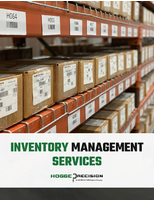Papers Are Invited for building wall assemblies symposium.
Press Release Summary:
Papers are invited for Building Walls Subject to Water Intrusion and Accumulation: Lessons from the Past and Recommendations for the Future. Contributions should address topics related to understanding scope and nature of problems as well as improving performance of building wall assemblies. Preliminary abstract is due by April 16, 2012 and must include definition of objective and approach of work discussed that points out new material and presents sufficient details regarding results.
Original Press Release:
Papers Are Invited for ASTM International Symposium on Building Walls Subject to Water Intrusion and Accumulation
W. CONSHOHOCKEN, Pa. - Papers are invited for a symposium on Building Walls Subject to Water Intrusion and Accumulation: Lessons from the Past and Recommendations for the Future, to be held April 14-15, 2013, at the JW Marriott Indianapolis in Indianapolis, Ind. The symposium is being sponsored by ASTM International Subcommittee E06.55 on Exterior Building Wall Systems, and will be held in conjunction with the April standards development meetings o ASTM Committee E06 on Performance of Buildings.
Through the continued efforts of many ASTM committees, including E06.55, numerous standards have been and continue to be developed to address the evaluation, design and repair of building walls. The objective of this symposium is to document both the industry's and ASTM's efforts in addressing these problems through standard development, and to disseminate this information.
This call for papers seeks contributions on the following topics related to understanding the scope and nature of the problem and improving the performance of building wall assemblies:
To participate in the symposium, presenters/authors must submit and attach a 250-300 word preliminary abstract by April 16, 2012. The abstract must include a clear definition of the objective and approach of the work discussed, pointing out material that is new, and present sufficient details regarding results. The presentation and manuscript must not be of a commercial nature nor can it have been previously published. Symposium co-chairman Jeff Erdly will notify you by July 14, 2012, of your paper's acceptability for presentation at the symposium.
Symposium presenters are required to submit their papers to the Selected Technical Paper (STP), an online and printed, peer-reviewed publication for the international scientific and engineering community. After the final selection of abstracts has been approved, the ASTM Editorial Office will send authors' instructions via email only. Manuscripts to be peer reviewed for the STP are due online no later than March 25, 2013, at the ASTM Editorial Office.
Visit www.astm.org/MEETINGS/COMMIT/e06cfp0413.htm for abstract submittal and additional information. Additional technical information is available from symposium co-chairmen Jeff Erdly, Masonry Preservation Services, Bloomsburg, Pa. (phone: 570-752-3607; jle@masonrypreservation.com); and Paul Johnson, Smithgroup Inc., Detroit, Mich. (phone: 313-442-8183; paul.johnson@smithgroup.com).
ASTM International is one of the largest international standards development and delivery systems in the world. ASTM International meets the World Trade Organization (WTO) principles for the development of international standards: coherence, consensus, development dimension, effectiveness, impartiality, openness, relevance and transparency. ASTM standards are accepted and used in research and development, product testing, quality systems and commercial transactions.
ASTM Staff Contact: Hannah Sparks, Phone: 610-832-9677; hsparks@astm.org




